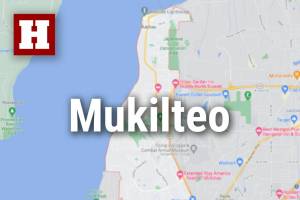Navy seeks to conduct SEAL training in Whidbey, Camano parks
Published 11:36 am Thursday, January 21, 2021
By Abbie Shull / The News Tribune
The Navy is seeking a permit to conduct special operations training exercises in 28 Washington State Parks, despite concerns from park users over the “creepiness” of the proposal.
The Navy plans to conduct five types of special operations training in Washington parks day or night for up to five years. Types of training include:
• Insertion and extraction training where trainees might approach or depart an area using submersible craft or watercraft.
• Combat swimming or diver and swimmer training where trainees would be confined to the ocean or inland water areas.
• Over-the-beach training where trainees would exit the water, cross the beach and continue to land-based activities.
• Surveillance and reconnaissance operations where trainees are taught techniques for conducting reconnaissance without alerting anyone to their presence or location.
The 28 parks where the Navy could conduct the training include Blake Island, Cama Beach, Camano Island, Cape Disappointment, Deception Pass, Dosewallips, Fort Casey, Fort Columbia, Fort Ebey, Fort Flagler, Fort Townsend, Fort Worden, Grayland Beach, Hope Island, Illahee, Joseph Whidbey, Leadbetter Point, Manchester, Mystery Bay, Pacific Pines, Scenic Beach, Sequim Bay, Shine Tidelands, Skagit Island Marine, South Whidbey, Triton Cove, Twin Harbors and Westport Light.
In 2015, the Naval Special Warfare Group 3, based at Naval Amphibious Base Coronado in San Diego, California, was granted a five-year permit to conduct training in five Washington parks: Blake Island State Park, Fort Flagler State Park, Illahee State Park, Mystery Bay and Scenic Beach State Park. That permit expired in May 2020.
Prior to 2015, the Navy worked directly with park managers to get permission to use various parks. A spokesman for Washington State Parks said the Navy’s use of the parks “predates agency records.”
A state Environmental Policy Act review by Washington State Parks found the request would not have “probable significant adverse impact” on the park’s environment.
The State Parks Commission is expected to take action on the Navy’s proposal at a Jan. 28 meeting. A special meeting to hear public comments is planned Jan. 26. The deadline to register to participate in public comment is 5 p.m. on Friday, Jan. 22. People can use the online comment form or send an email.
The Navy says Washington’s unique environmental conditions provide SEAL operators with critical development.
“No other region in the continental United States provides our naval special worker operators the same atmospheric conditions,” said Warrant Officer Esteban Alvarado, the representative for Naval Special Warfare Group 3. “While training in state parks, the objective is for our trainees to remain undetected, leave no trace and no presence and at the conclusion disappear back beneath the water.”
Alvarado said the Navy’s training on federal property — such as one of the Navy’s four bases in Washington — is highly restricted.
“Although Navy property is large in mass, the facts are, training areas are small and limited,” Alvarado said. “They provide little diversity and little complexity.”
Trainees at the state parks would not have real weapons or ammunition during exercises but would have simulated weapons.
The Navy was required to conduct their own environmental review and tribal consultation prior to submitting their applications for permits, according to Jessica Logan, the environmental program manager at Washington State Parks.
“We’re looking at things at a park-by-park level,” Logan said in a Nov. 19, 2020 state parks commission meeting. “The Navy’s environmental review looked at a large section of land — most of the Puget Sound and part of the coast. Our review will look at each specific park.”
Logan said the Navy was not being granted special treatment during the application process and will pay fees for permits the same way any other person or agency would.
She added that by reviewing public comments and other agency concerns, the environmental programs department identified four areas of potential impact: plants, animals, recreation and historic and cultural preservation. Logan added that the State’s Environmental Policy Act allows the parks commission to issue the permits with exclusion areas or areas with restrictive access.
“These are areas that we discourage the public from being in,” Logan said. “These are areas that are already on our radar that we can monitor. We know that we need these areas to be off-limits.”
If the permits are granted, they would also prohibit training near public camping areas or areas where the public often goes at night.
“There will be parks, potentially, that are not appropriate at all,” Logan said. “And there will be parks where there may be no issues to the Navy’s access of them.”
Washington State Parks has received hundreds of comments objecting to the Navy’s proposal. Many public comments called the proposal “disturbing” and suggested that the Navy already has “plenty of other space to train.”
Commissioner Sophia Danenberg said in the Nov. 19 meeting that almost all the comments have been “universally opposed.”
“There’s just a creepiness factor,” Danenberg said. “Even if you’re never seen, just people knowing that it’s happening — it’s making the public uncomfortable.”
Rear Admiral Stephen Barnett, commander of Navy Region Northwest, said the Navy would not be observing the general public during its training exercises but would be observing mock scenarios put on by military personnel.
Barnett added that the Navy is looking at federal, state and privately owned property for training exercises, but hasn’t been granted permission for any other areas.
Other mitigating measures the parks commission might include are a request that the Navy cease operations should they encounter park-goers, or possibly only granting the permits for certain parks during a limited time of year, according to Steve Brand, the planning, partnerships and real-estate program manager at Washington State Parks.
Brand said the Navy SEAL training does not support the mission of the Washington State Parks Commission.
“We can acknowledge the SEAL training does not support the mission, nor does it, generally, inhibit our mission,” Brand said. “But there are other many things that aren’t easily recognized as part of our mission that we do authorize permits for. Placement of cell-towers and communication sites, utility lines passing through parks … access easements, trail crossings, things like that.”
Brand added that the parks commission also authorizes training for fire departments and practice events for federal emergency management.




